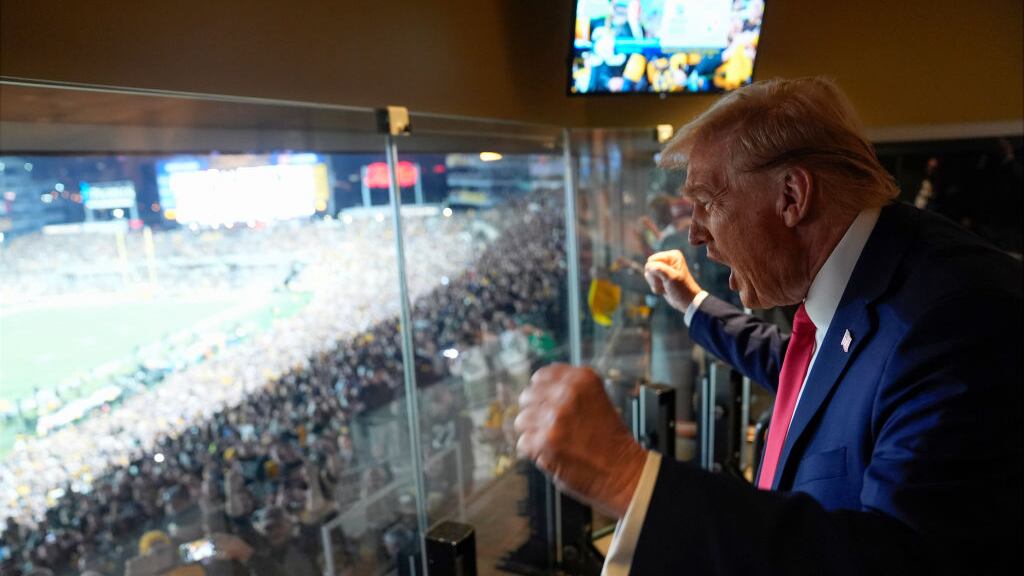More than four decades ago, Donald Trump, who was 38 years old at the time, saw a commercial opportunity and decided to buy the New Jersey Generals of the emerging United States Football League (USFL), a league created to capitalize on the successes of the NFL.
PUBLICIDAD
The USFL had been founded in 1983 with 12 teams and a clear strategy: to organize its championship between March and July, avoiding competing against the NFL, whose season was played in the fall. The league had a promising start, achieving good levels of viewership thanks to its innovations such as the two-point conversion, the use of referee challenges (they were the first competition in the world to have VAR), and a more offensive style of play.
PUBLICIDAD
Additionally, they hired standout players such as Herschel Walker, who arrived at the New Jersey Generals with the Heisman Trophy in hand, rejecting an immediate career in the NFL.
An internal conflict and the downfall of the league
Trump quickly became a controversial figure within the league, as he wanted to directly confront the NFL, aiming for a merger, like the one that had happened in the 1960s with the AFL.
John Bassett, owner of the Tampa Bay Bandits and one of the main advocates of keeping the season in the spring, opposed the plans of the New York magnate. However, Bassett was diagnosed with cancer, which weakened his influence within the league. In the absence of strong opposition, Trump convinced the team owners to move the season to the fall, naively thinking of challenging the NFL's reign.
The change in schedule was a fatal blow to the USFL. In addition, Trump pushed for an increase in salary expenses, leading teams to offer million-dollar contracts to attract NFL players, which caused an economic crisis within the league.
To make matters worse, Trump convinced them to file a lawsuit against the NFL for monopoly, demanding 1.3 billion dollars in compensation. Although a court ruled in favor of the USFL, only 3 dollars in damages were awarded (yes, you read that right, three dollars). This outcome was devastating for the league, which was already facing the loss of TV contracts and the abandonment of several teams due to accumulated debts. In 1986, the USFL suspended its season, and shortly after, both the league and its teams disappeared.
Who killed the USFL?
Since then, Trump's time in the USFL has been the subject of multiple journalistic investigations, such as the ESPN documentary "Small Potatoes: Who Killed the USFL?", part of the 30 for 30 series. The title refers to a derogatory comment made by Trump about the league, calling it insignificant.
The documentary points to the businessman as one of the main responsible for the collapse of the USFL, accusing him of using the team and the league as platforms to gain media attention in New York and, possibly, seek entry into the NFL through a merger. In the report, Keith Jackson, a commentator for ABC, stated: "He was a very dynamic figure, but dynamic for the interests of Donald Trump and not the league."
In a report by the BBC, commentator Charley Steiner made a particular comparison: "Who was driving the car in 'Thelma and Louise'? In the case of the USFL, Donald Trump was Thelma and the other franchise owners were Louise," in reference to the famous ending of the movie starring Susan Sarandon and Geena Davis.
A failure that marked Trump's relationship with sports
Despite his notoriety in the business world, Donald Trump never again directly led any sports team, except for a failed attempt to acquire the Buffalo Bills of the NFL 10 years ago.
A few months ago, the famous commentator Stephen A. Smith said that Trump came up with the idea of being President of the United States as a revenge against the NFL for allegedly blocking his purchase of the Bills.
The Buffalo team was sold to Terrence Pegula in October 2014, and Trump announced he would run for the Republican presidential primaries in June 2015.
